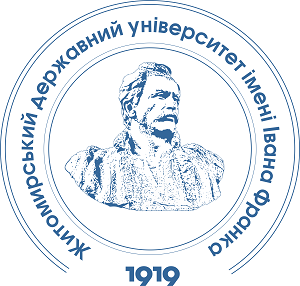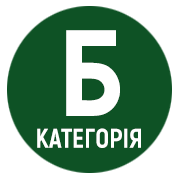THE PHENOMENON OF NATIONAL IDENTITY IN THE CONDITIONS OF INFORMATION WARFARE
DOI:
https://doi.org/10.32782/psy-2024-3-14Keywords:
national identity, nation, hybrid war, values, meanings, culture, informational and psychological operationsAbstract
The article explores the phenomenon of national identity, defining its main characteristics and principles of formation, and discussing possible formation options in modern socio-cultural conditions. As a socialpsychological phenomenon, national identity shapes a particular type of individual consciousness that enables orientation in conditions of mass behavior. The paper conducts a theoretical analysis of the problem of forming national identity in the context of information warfare, emphasizing its importance for ensuring the defense capability of the state. It is determined that in the conditions of information warfare, important elements of national identity include shared cultural elements. Special significance is attributed to such components as common geographic and domestic representation, language, and shared historical memory. In the context of information warfare, Ukrainians’ perceptions of events from historical antiquity are subjected to particular manipulation. The main problem for Ukraine in the face of Russian military intervention is the destruction of national identification at the level of mass culture, its devaluation against the backdrop of other cultures, and the formation of national inferiority. According to our conceptual understanding, national identity is a complex social phenomenon that develops over a long period, undergoing a complex process of maturation in the education system and mass culture. National identity cannot be formed in the short term; it is a comprehensive characteristic of individuals who have undergone a process of socialization in the context of national culture. The issue of forming national identity in times of war should be considered at the state level as one of the elements of national security. The state should mobilize various means and resources, especially in the field of non-material production, to create conditions for the dissemination of national culture among Ukrainian nationals both within and beyond Ukraine’s borders.
References
Нагорна Л. Поняття «національна ідентичність» і «національна ідея» в українському термінологічному просторі. Політичний менеджмент. 2003. № 2. С. 14–30.
Кириченко В.В. Особистість у сучасному інформаційному суспільстві. Житомир : Вид-во ЖДУ імені Івана Франка, 2020. 245 с.
Кириченко В.В., Дудник О.Ю. Психосемантична репрезентація образу ворога в українському медіапросторі (після початку повномасштабного вторгнення росії на територію України). Журнал соціальної та практичної психології. 2023. № 1. С. 5–11.
Кириченко В.В. Контекстуально-семантична диференціація міжгрупових атрибутів «радянський» та «європейський» у призмі етнонаціонального сприйняття українців. Дніпровський науковий часопис публічного управління, психології, права. 2023. Вип. 1. С. 85–90.
Бевз Т. Вплив глобалізації на утвердження національної ідентичності в умовах війни: виклики і загрози. Українознавство. № 3 (84). 2022. С. 8–26.
Кириченко В.В., Савиченко О.М. Genocides in the collective memory of ukrainians: the psychological practice of coping. Десятий Міжнародний Симпозіум з Мультидисциплінарного Вивчення Пам’яті «Пам’ять геноцидів / Геноциди пам’яті», 13–14 жовтня 2022 року, Інститут соціальних і гуманітарних наук «Альфонсо Велес Плієго» Заслуженого Автономного Університету Пуебла (Мексика) і Науково-дослідний інститут Історичної урбаністики. 2022. Режим доступу : https://view.genial.ly/63465456d1252f0011938b12.
Кириченко В.В. Психологічний аналіз медійного дискурсу російсько-української війни. Габітус. 2022. Вип. 41. С. 239–244.
Палієнко М. Українські архіви, війна та збереження національної ідентичності. Архіви України. 2022. Вип. 1. № 330. С. 12–38.
Кириченко В.В., Савиченко О.М., Сардаковський Я.А. Історична пам’ять українців: до проблеми психологічного вивчення українсько-польського протистояння та примирення. Пост-травматичний стресовий розлад: дорослі, діти і родини в умовах війни. Міжнародне науково-практичне видання / за заг. ред. І. Маноха, Г. Собчук. Т. ІІ. Варшава – Київ : ПАН. Гнозис, 2018. С. 43–57.
Anderson B. Imagined Communities: Reflections on the origin and spread of nationalism. The New Social Theory Reader. Routledge. 2008. 464 p.






